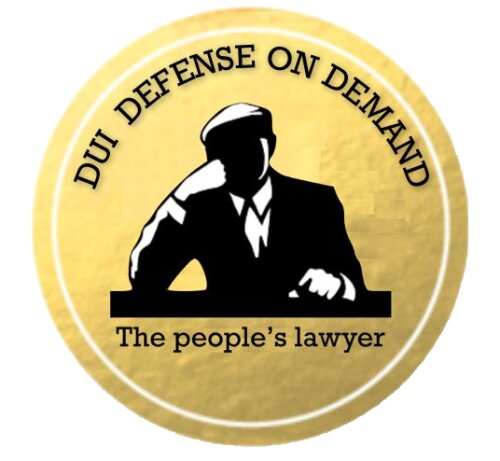Best Bail Bond Service Lawyers in San Jose
Share your needs with us, get contacted by law firms.
Free. Takes 2 min.
List of the best lawyers in San Jose, United States
1. About Bail Bond Service Law in San Jose, United States
Bail bond services in San Jose operate within California state law and local court practices. A bail bond is a form of surety that guarantees the defendant will appear for court proceedings, allowing release prior to trial. In California, bail bond agents are licensed and regulated by the California Department of Insurance, and they must comply with strict rules about fees, disclosures, and conduct.
Most California defendants facing charges post bail either with a cash bond posted by the defendant or a surety bond posted by a licensed bail bondsman. The standard premium for a surety bond in California is typically 10 percent of the bail amount, and this premium is generally nonrefundable according to state regulations. If the defendant fails to appear, the bond becomes in default and the surety may be responsible for surrendering the defendant and paying any court-ordered sums.
In San Jose, which lies within Santa Clara County, court procedures are administered by the Superior Court of Santa Clara County. The local bail schedule, court orders, and release conditions shape how bail is set and managed. A defendant or their representative may interact with a bail bondsman, a defense attorney, and court staff to navigate the release process.
Understanding these frameworks helps residents determine whether to hire a legal counsel or a bail bonds professional, and what rights and protections apply during the bail process.
Source: California Department of Insurance - Bail Bonds and license requirements (official regulatory guidance) https://www.insurance.ca.gov
Source: Santa Clara County Superior Court - Bail procedures and exoneration basics (official court information) https://www.scscourt.org
Source: California Courts - Bail and bonds overview for self-help and guidance (official state court information) https://www.courts.ca.gov
2. Why You May Need a Lawyer
Below are concrete, real-world scenarios in San Jose and Santa Clara County where you would benefit from legal counsel in Bail Bond Service matters. These are not generic statements and reflect common challenges faced by residents in the area.
- You are asked to sign a new contract or add collateral after release; you suspect the terms were misrepresented or adjusted without clear disclosure.
- The court sets bail at a high amount or refuses an alternative release option and you want to explore a bail reduction or an own recognizance motion.
- Your bail bond agent claims additional, undisclosed fees or attempts to repossess collateral without proper notice or documentation.
- The defendant is charged with multiple offenses and you need coordinated defense strategy and bond management across cases in Santa Clara County.
- You are a non-citizen and bail decisions may affect immigration status; you need counsel who understands both criminal and immigration implications.
- The bond is exonerated or the case resolves; you need timely release of collateral and proper settlement of any outstanding obligations.
A qualified lawyer can evaluate the legality of your bail terms, negotiate with the bail agent, prepare a timely motion for bail reduction, and protect your rights if there is any improper conduct by the bondsman or the court.
3. Local Laws Overview
In San Jose, bail bond service practice is governed primarily by California state law and California licensing regulators, with local court rules guiding release and exoneration. Key themes include licensing and conduct of bail bond agents, permissible fees, and the court’s role in setting and reviewing bail.
Two important regulatory frameworks to be aware of are the California Bail Bond Act embedded in the California Insurance Code and the California Code of Regulations that govern licensing and practice for bail bond agents. These provide the structure for who may operate as a bail bondsman, what disclosures must be made, and what happens if a bondsman fails to perform as contracted.
Santa Clara County’s bail schedule informs typical bail amounts for offenses and affects how quickly a defendant may be released. Courts may also entertain motions for bail reduction, release on own recognizance, or alternative release programs depending on the case specifics and the defendant’s ties to the community.
Recent trends in California include ongoing consumer protection efforts by the Department of Insurance and heightened scrutiny of licensing and conduct by bail bond agents. These developments emphasize transparency in fee structures, contract disclosures, and lawful collections practices.
Source: California Department of Insurance - Bail Bonds overview and licensing requirements (official guidance) https://www.insurance.ca.gov
Source: California Courts - Bail and bonds information for litigants (official state court guidance) https://www.courts.ca.gov
Source: Legislation overview - California Insurance Code and related regulations (official legislative and regulatory sources) https://leginfo.legislature.ca.gov
4. Frequently Asked Questions
What is a bail bond and how does it work in San Jose?
A bail bond is a contract that guarantees the defendant’s appearance in court. A bondsman posts the bail that the court requires, in exchange for a premium. If the defendant appears as required, the bond is exonerated; if not, the bond may be forfeited.
How do I qualify for release on bail in Santa Clara County?
Qualifying for release depends on factors like the charge, flight risk, criminal history, and ties to the community. The court may approve release with conditions, or require a bail bond or cash bond.
What does a bail bondsman charge in California and is the fee refundable?
The typical premium is 10 percent of the bail amount and is usually nonrefundable. If the defendant fails to appear, the bondsman may seek restitution and potentially sue for breach of contract.
How long does the bail process take in San Jose from arrest to release?
The timeline varies by case. Some defendants are released within hours after booking, others may require court hearings or bond arrangements that take a day or more.
Do I need collateral to post a bond in Santa Clara County?
Collateral is commonly required for large bail amounts or to secure the bond. The value and form of collateral are negotiated in the bond contract and may be subject to state rules.
Can a lawyer help reduce bail or exonerate the bond after a case ends?
Yes. A lawyer can file motions for bail reduction or release of the bond, and ensure proper exoneration once the case is resolved or charges are dismissed.
What is the difference between a cash bond and a surety bond?
A cash bond requires posting the full bail amount in cash. A surety bond uses a bondsman to post the bail in exchange for a premium, with the defendant or owner typically at risk for nonappearance.
How do I check the status of my bail bond in Santa Clara County?
Ask your attorney or the bail bondsman for status updates. The court clerk and the defense team can provide hearing dates and bond status as cases proceed.
Is public defender or legal aid available for bail matters in San Jose?
Yes. Public defenders and legal aid organizations may assist with bail hearings, understanding bond terms, and ensuring due process when funds or rights are at stake.
What should I ask a bail bond agent before hiring them?
Ask about the total premium, any extra fees, collateral requirements, payment terms, notice of forensic or court changes, and how they handle exoneration.
Do I need a lawyer if I have already posted bail?
A lawyer can still help with ongoing case strategy, potential bail reductions, procedure, and ensuring the bond is exonerated when appropriate.
Do I need to hire a lawyer to handle bail decisions or bail revocation in California?
In many cases, yes. A lawyer provides guidance on challenging bail decisions, filing appeals or motions, and navigating court deadlines effectively.
5. Additional Resources
The following official resources can help you understand bail bonds, licensing requirements, and court procedures in California and specifically for San Jose and Santa Clara County.
- California Department of Insurance (CDI) - Official regulator for bail bond agents and consumer protections in California. Website provides licensing requirements, complaint processes, and consumer guidance. https://www.insurance.ca.gov
- Santa Clara County Superior Court - Bail information, court procedures, and exoneration practices relevant to cases heard in San Jose. https://www.scscourt.org
- California Courts Self-Help Center - General guidance on bail, bonds, and related civil/criminal procedures across California. https://www.courts.ca.gov
6. Next Steps
- Clarify your situation - Write down the arrest date, charges, court, bail amount, and contact details for the bondsman or attorney. This helps prioritize your search and decisions within 24 hours after arrest.
- Decide between a bail bondsman and a criminal defense attorney - If you need immediate release, a licensed bail bondsman can help with posting bail; for case strategy, hire a criminal defense attorney. Consider both options in parallel if possible.
- Verify licensing and background - Check the California Bar for attorney licensing and CDI for bail bondsman licensing. Verify any practitioner’s track record before engagement. California Bar • CDI
- Schedule consultations - Contact 2-3 Santa Clara County attorneys or bail bondsmen for brief consultations. Aim to complete within 3-5 days of arrest to avoid delays in release or strategy planning.
- Ask for a written engagement or contract - Ensure it spells out fees, collateral, payment terms, and exoneration timelines. Get a copy before signing anything.
- Prepare for the bail process - Gather identification, case numbers, and any court deadlines. Keep all documents organized for timely submission and updates.
- Monitor the case and follow up - Maintain regular contact with your attorney and bondsman about hearings, deadlines, and any changes to bail terms or appearance requirements.
Lawzana helps you find the best lawyers and law firms in San Jose through a curated and pre-screened list of qualified legal professionals. Our platform offers rankings and detailed profiles of attorneys and law firms, allowing you to compare based on practice areas, including Bail Bond Service, experience, and client feedback.
Each profile includes a description of the firm's areas of practice, client reviews, team members and partners, year of establishment, spoken languages, office locations, contact information, social media presence, and any published articles or resources. Most firms on our platform speak English and are experienced in both local and international legal matters.
Get a quote from top-rated law firms in San Jose, United States — quickly, securely, and without unnecessary hassle.
Disclaimer:
The information provided on this page is for general informational purposes only and does not constitute legal advice. While we strive to ensure the accuracy and relevance of the content, legal information may change over time, and interpretations of the law can vary. You should always consult with a qualified legal professional for advice specific to your situation.
We disclaim all liability for actions taken or not taken based on the content of this page. If you believe any information is incorrect or outdated, please contact us, and we will review and update it where appropriate.









